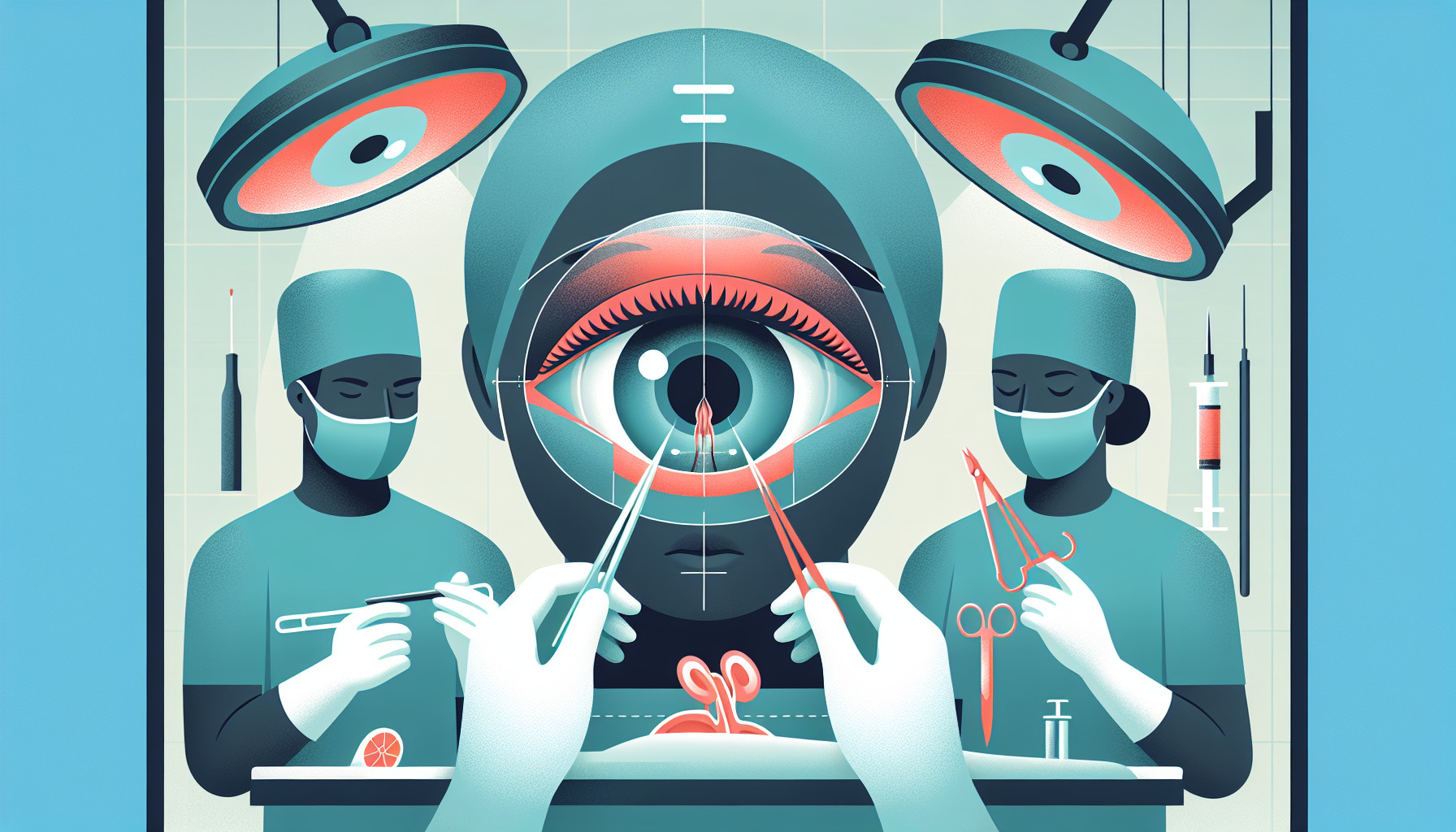Our Summary
This study aimed to understand why some people delay getting eye surgery for strabismus, a condition where the eyes do not properly align with each other, and what motivates them to eventually get the surgery in adulthood. The researchers surveyed 91 adults who had suffered from strabismus since childhood but had delayed surgery.
On average, these adults had put off surgery for about 20 years. The most common reasons for delaying the surgery were lack of knowledge about the surgery, fear of surgery, past bad experiences with surgery, and not being able to afford it. Some also reported that eye doctors had told them surgery would not improve their strabismus.
The main reasons these adults finally decided to get the surgery were to improve their appearance, increase their self-confidence, improve their social relationships, and enhance their job opportunities. Some were also influenced by advice from family and friends.
The study found that about 80% of delays in getting strabismus surgery were due to lack of awareness about the surgery and a misconception among some healthcare practitioners that surgery wouldn’t improve the condition. The researchers highlighted the importance of focusing on individual patient concerns and needs when treating adults with strabismus.
FAQs
- What are the common reasons people delay getting strabismus surgery?
- What motivates adults to eventually get strabismus surgery?
- What did the study find to be the major causes for delays in getting strabismus surgery?
Doctor’s Tip
One helpful tip a doctor might give a patient considering strabismus surgery is to research and educate themselves about the procedure, potential benefits, and realistic expectations. It is important for patients to discuss any concerns or hesitations they may have with their healthcare provider, as well as seek second opinions if needed. Additionally, understanding the potential positive impact the surgery can have on appearance, self-confidence, social relationships, and career opportunities may help motivate patients to move forward with the procedure.
Suitable For
Patients who are typically recommended strabismus surgery are those who have been diagnosed with strabismus, a condition where the eyes are misaligned and do not work together. In many cases, strabismus is diagnosed in childhood, but some adults may also seek surgery to correct the alignment of their eyes.
Patients who may be recommended for strabismus surgery include those who experience double vision, eye strain, headaches, or difficulty with depth perception due to their misaligned eyes. Additionally, individuals who are self-conscious about the appearance of their eyes or who experience social or professional challenges due to their strabismus may also be good candidates for surgery.
Ultimately, the decision to undergo strabismus surgery should be made in consultation with a qualified eye care provider who can assess the individual’s specific needs and determine the most appropriate course of treatment.
Timeline
Before strabismus surgery:
- Patient may have had strabismus since childhood
- Lack of knowledge about surgery
- Fear of surgery
- Past bad experiences with surgery
- Financial concerns
- Some healthcare practitioners may have told them surgery wouldn’t improve their condition
After strabismus surgery:
- Patient decides to get surgery to improve appearance, increase self-confidence, improve social relationships, enhance job opportunities
- Influence from family and friends
- Surgery performed to align the eyes properly
- Recovery period following surgery
- Follow-up appointments with the eye doctor to monitor progress
- Improved alignment of the eyes
- Increased self-esteem and overall quality of life
What to Ask Your Doctor
Here are some questions a patient should ask their doctor about strabismus surgery:
- What are the potential risks and complications associated with strabismus surgery?
- What is the success rate of strabismus surgery in improving eye alignment?
- How long is the recovery process after strabismus surgery?
- Will I need to wear glasses or use eye drops after the surgery?
- How many strabismus surgeries have you performed, and what is your experience with this procedure?
- Will I need follow-up appointments after the surgery, and if so, how often?
- What are the alternatives to surgery for treating strabismus?
- How will strabismus surgery affect my daily activities and lifestyle?
- Will insurance cover the cost of strabismus surgery, and if not, what are my options for payment?
- Can you provide me with before and after photos of previous patients who have undergone strabismus surgery?
Reference
Authors: Paduca A, Arnaut O, Lundmark PO, Bruenech JR. Journal: Strabismus. 2021 Sep;29(3):151-157. doi: 10.1080/09273972.2021.1948070. Epub 2021 Jul 5. PMID: 34223792
